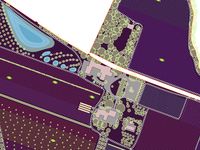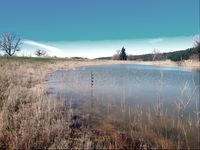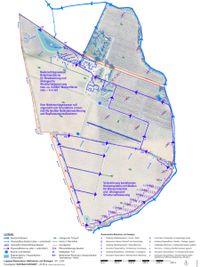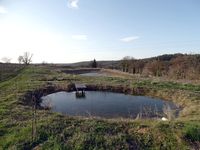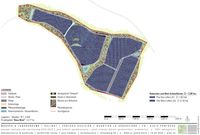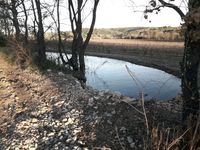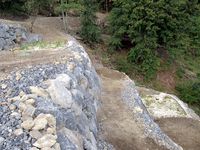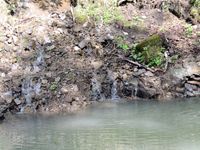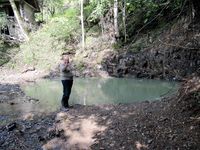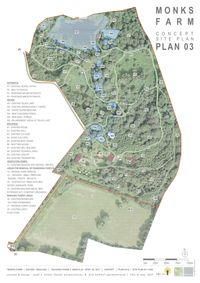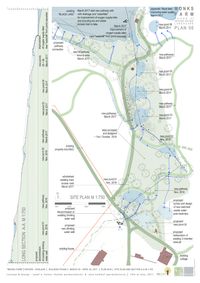more projects
Provence | 2018
Description | The “Delinat” farm cultivates an organically certified vineyard of over 20 hectares at Château Duvivièr in south-eastern France.
Extreme weather events in recent years, increasingly long periods of drought and heavy rainfall have had a negative impact on the water balance of the property, leading to a drop in yield and quality.
The revitalization of the vineyard was conceived, planned and implemented for and with “Holzer Permaculture” (Josef A. Holzer). Targeted water retention measures were designed to strengthen the resilience of the farm and optimize the entire operational ecology and economy.
Hedgerow structures were intensified and excess precipitation water was decentralized in retention ponds for infiltration. Strategically targeted earthworks and selected planting measures were able to stabilize the water balance and thus increase the desired fertility. Château Duvivièr serves the winery as a test facility and as a model winery for the many partner wineries throughout Europe.
Slovenia | 2018
Description | The project area is located in the Upper Savinja Valley, a typical Alpine landscape surrounded by densely forested mountains in the north and a karst plateau in the south.
The former mountain farm was intended to serve as a family country residence for recreation and enable extensive farming. A landslide and a lack of infrastructure were part of the initial prerequisites.
The concept, which focused on “decentralized water retention”, provided for a spring for the drinking water supply, the construction of natural stone terraces on the steep slope with a path system for extensive garden use, the construction of a “rock pond” and a constructed wetland.
The creation of ecological structures allows the family to use their country estate largely autonomously and is also a valuable component of the region's biotope network.
Oxford | 2016 - 2018
Project description | Monks Farm is located on the outskirts of Oxford. Due to the very extensive cultivation of the past decades, a stable ecosystem with a great diversity of plants and animals has developed here. The now densely wooded farm was used for animal husbandry in the 19th century, surrounded by pastures and meadows and bordered by trees and hedges. The existing “Black Lake” was created by the intensive extraction of clay.
The concept was developed with and for “Holzer Permaculture” (Josef A. Holzer) and includes the restoration of partially open landscape elements, which are connected by a meandering system of paths. Extensively planted orchards not only improve the aesthetic quality in the form of better light and visibility, but also promote the ecological diversity of the different and variable habitats.
Strategically placed spring catchments, seepage pipes and the creation of a cascading interconnected pond system preserve the abundance of water on the site and positively influence the water quality of the “Black Lake”.
The resulting parkland meets the family's desire for a country estate in the middle of this natural paradise with over a hundred years of trees and a diversity of life that can now be explored and experienced via an extensive network of paths.
California | 2013
Project description | The “Palms of Malibu Ranch” is located on the south coast of California, northwest of Los Angeles. In terms of climate and vegetation, California is comparable to the Mediterranean region in Europe (summer drought and winter rain). However, incorrect water management over the years has also had negative consequences for the ranch. Dry spells and droughts led to water shortages and wildfires, heavy rainfall to flooding and erosion.
The concept and planning were developed for and with Sepp Holzer (“Holzer Permaculture”). The aim was to stabilize the water balance in order to increase resilience to extreme weather events. All available water was to be stored and distributed on the site using various water retention measures.
The restoration of the impaired vegetation, structural improvements such as the construction of terraces and targeted humus build-up were further measures that were to enable the revitalization of the ranch.
Thus, with relatively little effort, the “Palms of Malibu Ranch” became a “green jewel”, according to owner Klaus Heidegger, which not only withstands California's annual forest fires and floods, but also allows oranges and avocados to thrive.
